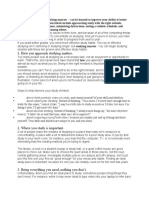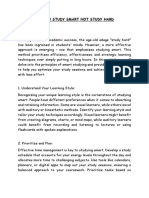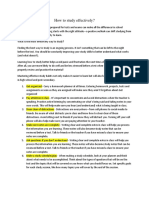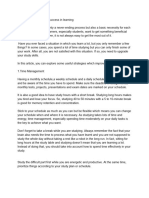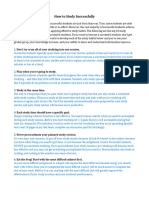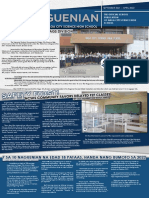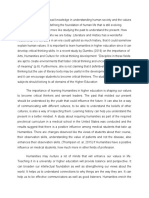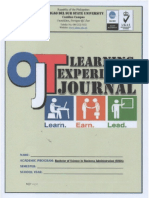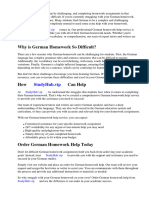0% found this document useful (0 votes)
84 views4 pagesMastering Study Strategies and Techniques
This document outlines effective study strategies and techniques for secondary school students, emphasizing the importance of organization, active reading, and the use of visual aids. It discusses methods such as practice testing, spaced repetition, and applying knowledge to real-life contexts, while also highlighting the need for motivation and a balanced lifestyle. Ultimately, the article encourages continual improvement and adaptation of study methods to enhance academic performance and foster a lifelong love of learning.
Uploaded by
dennisysh1Copyright
© © All Rights Reserved
We take content rights seriously. If you suspect this is your content, claim it here.
Available Formats
Download as PDF, TXT or read online on Scribd
0% found this document useful (0 votes)
84 views4 pagesMastering Study Strategies and Techniques
This document outlines effective study strategies and techniques for secondary school students, emphasizing the importance of organization, active reading, and the use of visual aids. It discusses methods such as practice testing, spaced repetition, and applying knowledge to real-life contexts, while also highlighting the need for motivation and a balanced lifestyle. Ultimately, the article encourages continual improvement and adaptation of study methods to enhance academic performance and foster a lifelong love of learning.
Uploaded by
dennisysh1Copyright
© © All Rights Reserved
We take content rights seriously. If you suspect this is your content, claim it here.
Available Formats
Download as PDF, TXT or read online on Scribd
/ 4



